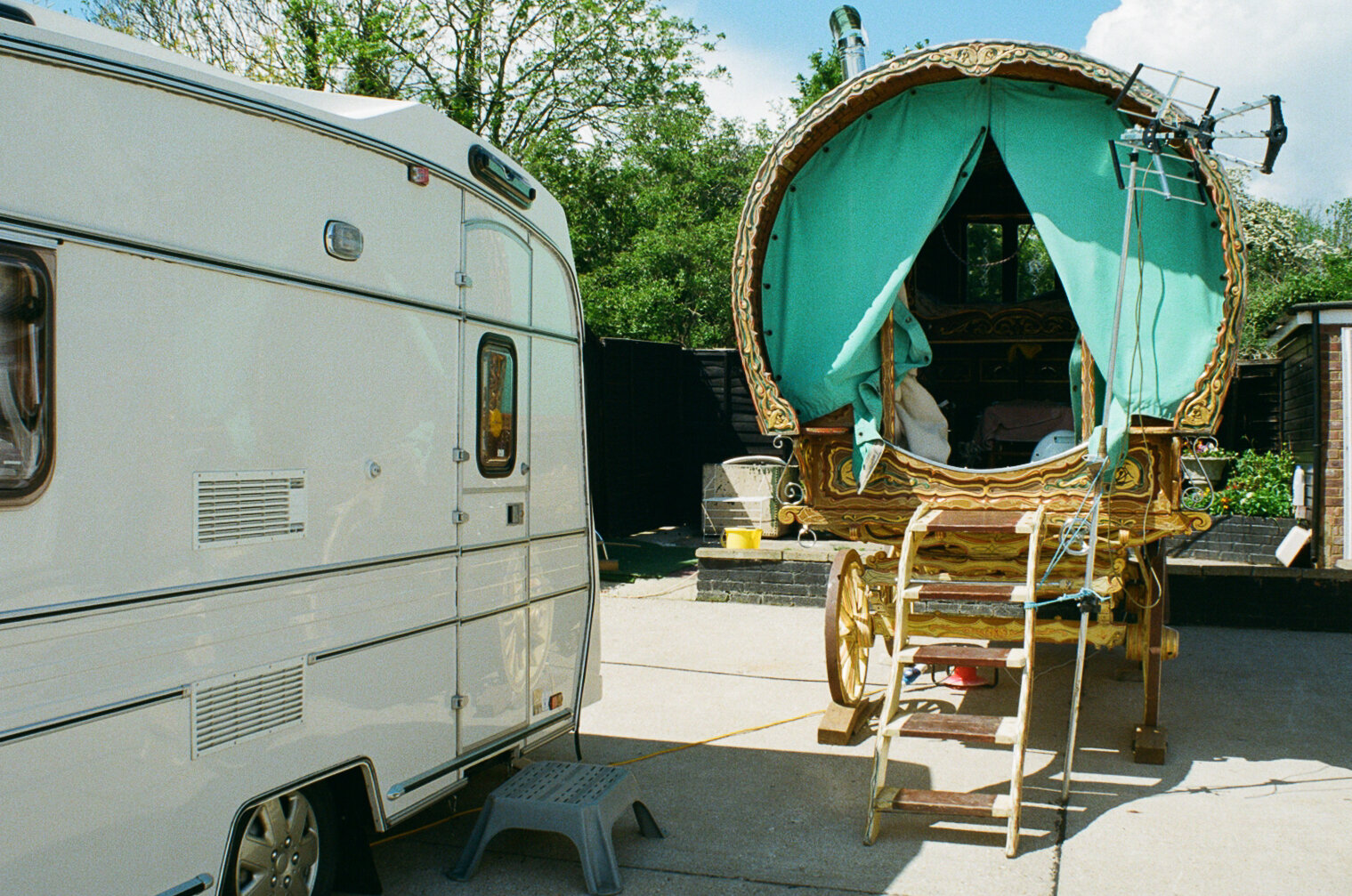Just Human
Photography by Lydia Clarke
In the UK, ownership, particularly homeownership, is seen as the pinnacle of security and respectability. People of no fixed abode, we’re told, threaten our nice civilised society. Anything and anyone that challenges the static way of living are cast as dangerous and not to be trusted. Those who live a more nomadic life, who choose to experience life in a different way, are viewed with suspicion, told to move on, told they’re not welcome.
These were the notions and prejudices that Lydia Clarke wanted to explore in her project, Just Human. She wanted to speak to people in the travelling community, to get to know them and find out about the issues facing their way of life. “Modern society doesn’t have space for those in the nomadic community,” Lydia explains. “Travelling culture is changing, and many feel trapped by the societal pressures which force them to travel less, and conform to more settled ways of life.”
As part of the project, Lydia met and photographed different families, and we’re proud to publish three of the stories here. Lydia hopes the stories help educate people about the challenges facing the travelling community, “Open-mindedness, acceptance, and understanding will be the cure for the discrimination that people who travel face just for existing.” We’re just human, after all.
John Lea, English Traveller
John is 75 years old. After travelling throughout the UK for most of his life, he is now settled on a site with his wife.
“I’ve travelled about all my life until I come on here. I’ve been here about 10 years. I’m near enough too old to do it now.
When I was younger, an old man said to me one day, ‘You know this travelling about? This is finished’. I said, ‘What do you mean?’ He said, ‘Well, when they get the sites built, the children will all go to the schools, and they’ll grow up with the people around them houses. They’ll be with them children, they’ll marry into them, then they’ll want to go into the houses, and that’s the end of it’.
Then they made these places like this, and they’re like prisons to us, it’s like a prison to me. It’s like getting a wild bird and putting it into a cage.”
Louise, English Traveller
Louise lives with her eight children; Demi 15, Chelsea 14, Harley 11, Whitney 10, Lacey 8, Leyroy 6, Mary-Kate 4, and Bentley 1.
“We’re all the same apart from we live in trailers, and other people live in houses. So there shouldn’t be this big divide.
The travelling community is really tight. It’s like family. If one of us has got a problem, we’ve all got a problem, and we’ll all stick up for each other.
Family is more important than anything. Nothing else matters apart from family.
Travellers have got a bad name because of things a few people have done, then we all get classed the same. We’re not all bad. There’s good and bad in all cultures no matter what background you come from.
We’re just human. We just live in different ways. We like different things. We have different beliefs. The kids have got more freedom living on a site. It’s a completely different life than it is in a house.
People who live in houses do things wrong as well. They’re not saints.”
John and Sheryl, English Travellers
John was born and raised as a Traveller. Sheryl joined the community when she married John.
“When we got married, the police turned up at our wedding. There was no trouble. There was no reason for them to be there other than they found out it was a Traveller’s wedding. You wouldn’t do that to any other person’s wedding.
The prejudice and judgement haven’t got any better. It’s just changed. It’s in different forms. I can go into a shop with non-Traveller friends, and it’s okay. But, then I can go into the same shop the next day with Traveller friends, and we won’t be allowed in. Or, they’ll only allow two people at a time.
We’re always put where you wouldn’t put anyone else here to live. We’re always put near a train track, or a tip, or a main road.
The best thing about being a Traveller is that you’ve got more freedom. I can show my child a different way of life. It’s a better way of living, but it comes with a price.
Once you’re known as a Traveller, you’re not John and Sheryl anymore. Our friend worked in a place for years, and no one knew she was a Traveller because she wouldn’t tell anybody, in case she got sacked or was judged differently.
A lot of people think, ‘Oh, they don’t pay tax or insurance.’ In this day and age, it’s stupid because of course, you have to. Maybe years and years ago they didn’t, but most people have settled down now so you have to.
This life comes with good morals. But sometimes, the morals have got lost along the way. I think that’s the same with every culture. But the morals are there, they’re old fashioned morals. I think the people that see the bad in Travellers are the ones that need educating more about it.”
















